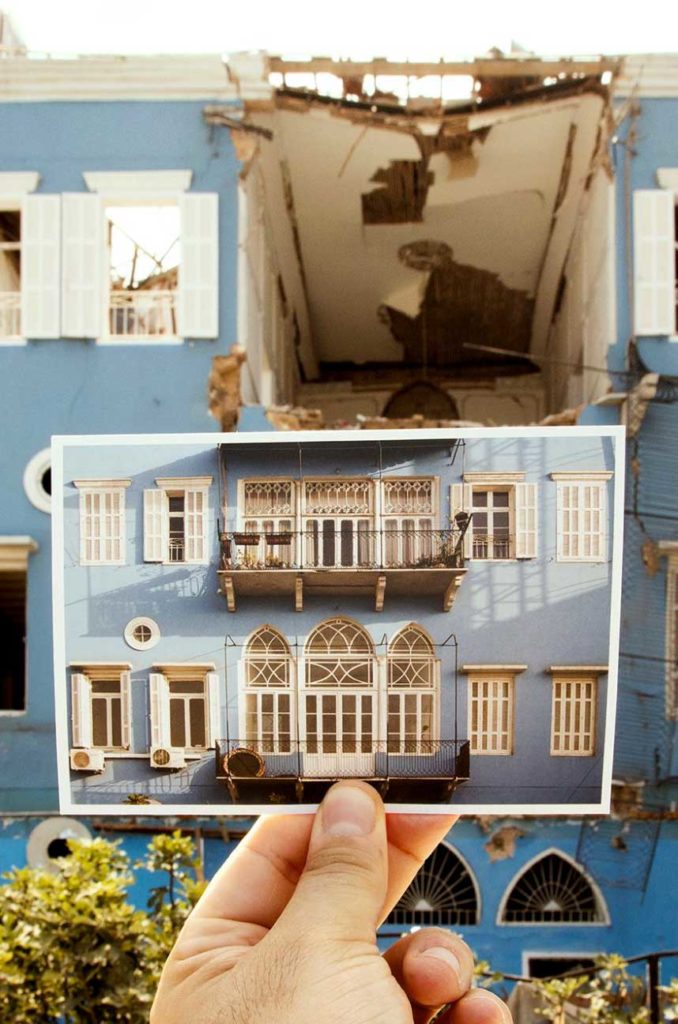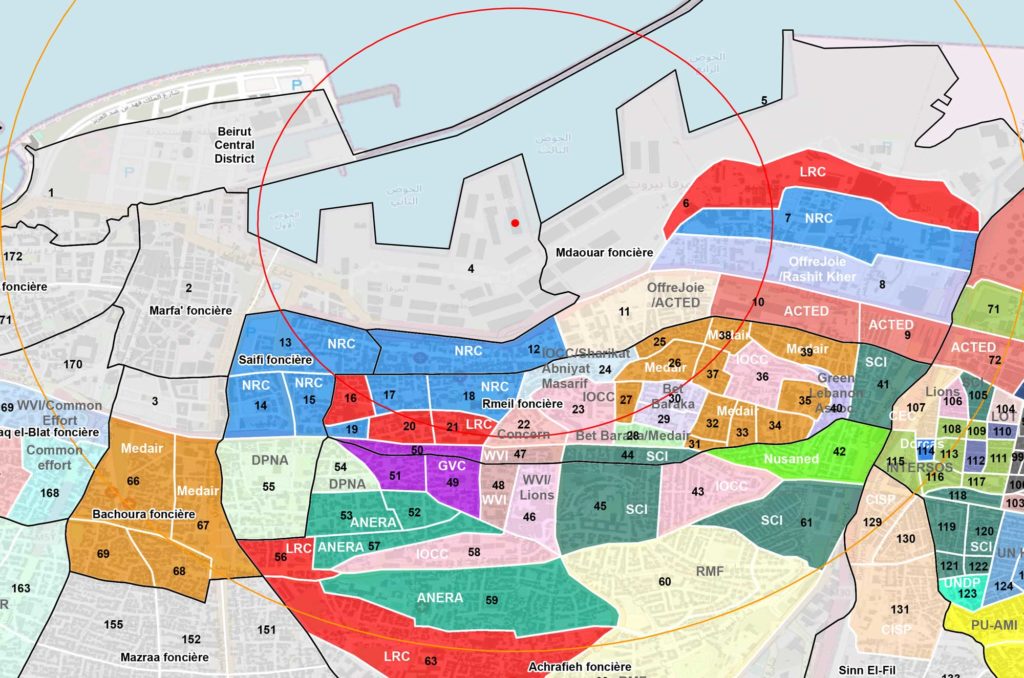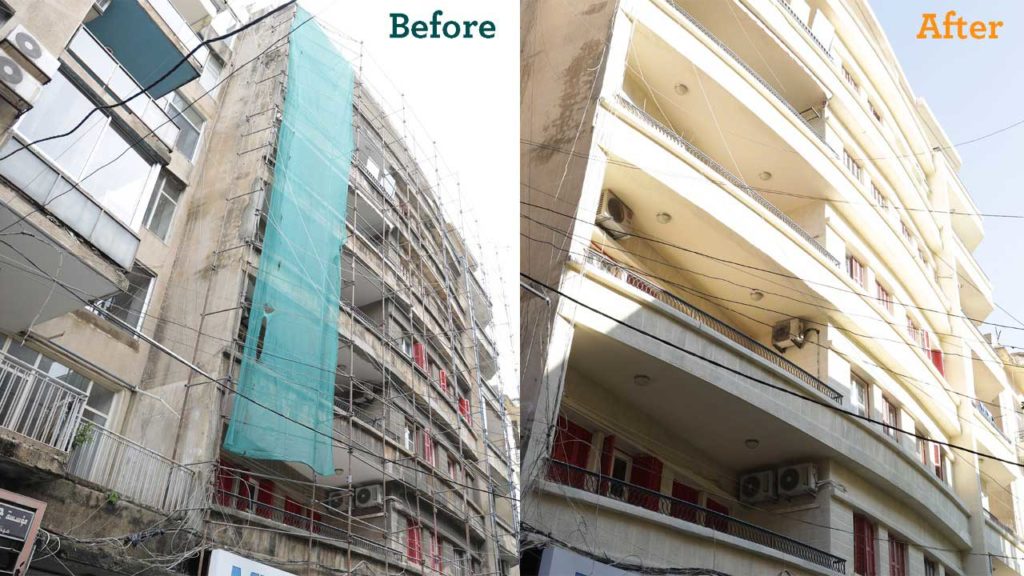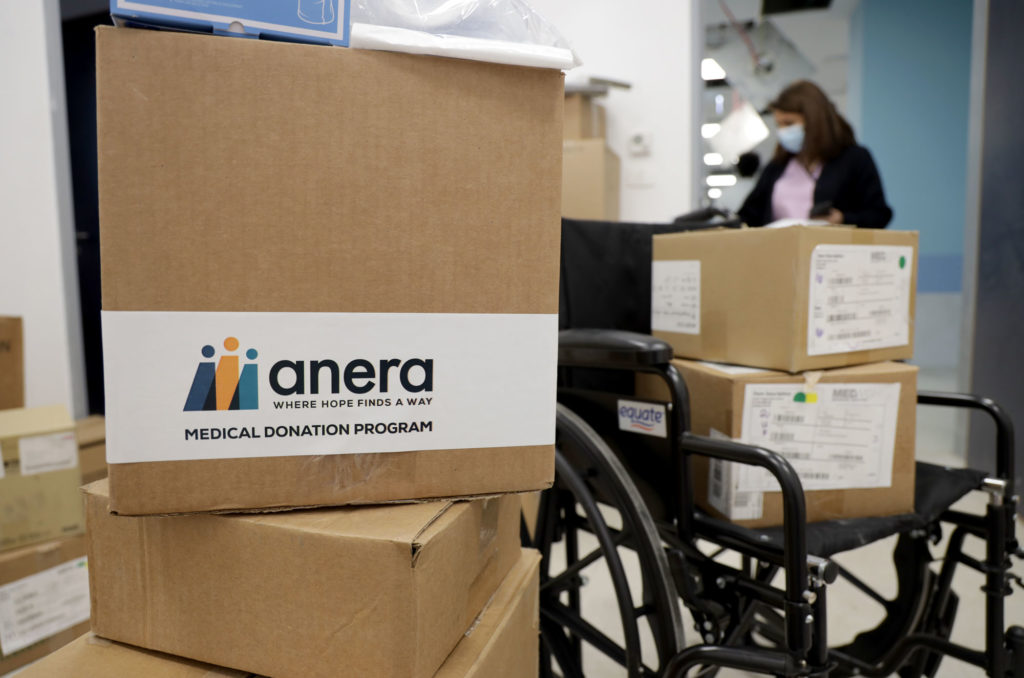By Ally Schultz | Development Assistant
March 4th marks the seventh month anniversary of the Beirut blast. While our Anera staff have worked through their fair share of crises and extreme conditions, the August 4 explosion was truly extraordinary. In a matter of seconds the landscape and history of Beirut was changed forever.
Since the explosion, Anera has been actively responding to the aftermath. The physical devastation to residential buildings forced many Beiruti families to leave their homes to stay with relatives or find temporary rentals elsewhere. Others had no choice but to stay in their damaged homes.
 A beautiful old apartment building pictured from before the Beirut blast juxtaposed with the damage the explosion did.
A beautiful old apartment building pictured from before the Beirut blast juxtaposed with the damage the explosion did.At the outset, Anera made it a goal to restore people’s homes to at least the way they were and, in some cases, to improve their condition. In every home repair, we are following the minimum standards established by the UN’s Shelter Working Group: installing reliable plumbing systems, doors for privacy, an electrical outlet in each room, and so on. For many of the families, this means the repairs will actually improve the standard of housing from what it was before the blast.
We have worked as quickly as possible, but it is taking longer than initially anticipated. Coordination among responding organizations is complex and COVID lockdowns have caused snags in program delivery. The current one-month lockdown has been the most restrictive so far.
Since the days immediately after the blast, when our construction students went out to informally visit damaged houses and fill in surveys, Anera has rehabilitated 500 homes and 80 shops. We are in the process of working on another 120 and have identified, so far, 1,000 homes for intervention. They are scattered through the neighborhoods of Zkak El Blat, Khandak El Ghamik, Bachoura, Burj Hammoud, Karantina, Achrafiye, Rmeil, Mar Mikhael and Gemmayze.
 This is a portion of the UN Interagency Coordination map for repairs to homes in Beirut. Anera is indicated in teal green. We coordinate closely with other organizations on the ground.
This is a portion of the UN Interagency Coordination map for repairs to homes in Beirut. Anera is indicated in teal green. We coordinate closely with other organizations on the ground.We are gradually moving closer into the blast site with some of our rehabilitation work. One new initiative is our work on the facades of buildings near where the explosion happened. Where other organizations have set up scaffolding for work on the buildings, we have patched up the facades to prevent water damage and painted them. These cosmetic changes may seem like a lesser priority, but they truly have brought joy to people. Many buildings looked fairly decrepit to begin with, so these interventions are very welcome. We are also fixing other common spaces like stairs and roofs. Anera does not want to leave things half finished.
 One of the facades of a building that Anera rehabilitated in the Beirut neighborhood of Achrafiye.
One of the facades of a building that Anera rehabilitated in the Beirut neighborhood of Achrafiye.In addition to our home and shop repair work, Anera has shipped and distributed 34 containers – 224 tons – of donated medicines and healthcare supplies to Beirut hospitals. Another 11 shipments are in process. Their total worth is $33.2 million and they include PPE, chemotherapy medicine, COVID antibody tests, disability aids, anesthetics, and much more.
 A medical aid donation from MedWish International at Karantina Hospital.
A medical aid donation from MedWish International at Karantina Hospital.Institutional donors like UNICEF, Muslim Aid, Alumbra Innovations Foundation, Direct Relief, Americares, IHP, METAD, CMMB, Airlink, and hundreds of individuals have come forward to generously support our ongoing efforts.
There is still so much to be done and the people of Beirut are so grateful for the support!
Project reports on GlobalGiving are posted directly to globalgiving.org by Project Leaders as they are completed, generally every 3-4 months. To protect the integrity of these documents, GlobalGiving does not alter them; therefore you may find some language or formatting issues.
If you donate to this project or have donated to this project, you can receive an email when this project posts a report. You can also subscribe for reports without donating.